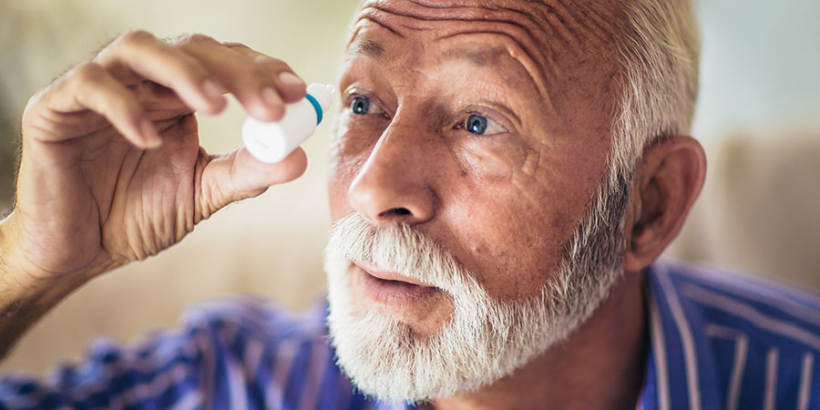Do you spend a lot of time staring at the screen of your phone or laptop? You may be suffering from dry eye syndrome and be unaware of it. When your tears cannot maintain your eyes moisturized, you have a dry disease. Common symptoms include red eyes, impaired vision, and a burning feeling in the eyes. If you detect any of these symptoms, make an appointment with your ophthalmologist at once.
A dry eye condition is a frequent ailment in which your tears cannot adequately lubricate your eyes. Tears can be insufficient and unstable for a variety of causes. Dry eyes, for example, might develop if you do not produce adequate tears or if your tears are of low quality, according to Mayo Clinic.
Dry Eye: No Cry
The disease may feel unpleasant. Your eyes may hurt or burn if you already have dry eyes. Dry eyes can occur in various scenarios, including flying, being in an air-conditioned environment, riding a bike, or staring at a computer monitor for several hours. Dry eye treatments may make you feel more at ease. Treatments may involve dietary adjustments and eye medications. You'll most likely need to perform these steps indefinitely to alleviate the signs of dry eyes.
AOA stated a range of factors that impair the natural tear film might cause dry eyes. The tear film comprises three layers: fatty oils, aqueous fluid, and mucus. This mixture normally maintains your eyes' surface moisturized, smooth, and clear. Dry eyes can be caused by issues relating to any of these layers.
Various factors, including hormonal changes, autoimmune illness, irritated eyelid glands, or allergic eye problems, can cause tear film malfunction. Dry eyes can be caused by reduced tear production and excessive tear evaporation in certain persons. Common symptoms often include stinging, blistering, or scratchy sensations in your eyes, stringy mucus within or around one eye, and acute sensitivity to light. Other symptoms include eye redness, the sense of an object in your eyes, trouble using corrective lenses, watery eyes (the processes leading to the discomfort of dry eyes), and impaired vision or eye tiredness.

Dry eye is a common and chronic problem, particularly in older adults. With each blink of the eyelids, tears spread across the front surface of the eye, known as the cornea.
Hydrating Treatments
Patients with dry eyes may develop issues, including eye infections. Your tears guard the area of your eyelids from infection. You are more likely to have an eye infection if you do not have enough tears. If severe dry eyes are not treated, they can cause eye irritation, abrasion of the ocular surface, corneal ulcers, including vision loss. And a worse quality of life because dry eyes might make it harder to accomplish routine tasks like reading.
Artificial tears, a form of eye drop, are the most often used therapy for moderate dry eyes. These eye drops are available without a prescription. Over-the-counter hydrating gels and ointments may also help your pupils feel better. If anything in your life or environment is causing or exacerbating your dry eye, your doctor may recommend measures to safeguard your eyes, as per the National Eye Institute.
For instance, if a medication you're taking for another health problem is causing dry eyes, your doctor may advise you to switch medications. If your tears are emptying too fast, your doctor may recommend inserting special plugs (known as punctal plugs) into the tear ducts (small holes in the inner corners of your eyes). These plugs might aid in the retention of tears in the eyes. In the least cases, dry eyes syndrome can be treated by surgery. A dry eye can occur in rare circumstances when the lower eyelids are too lax, allowing tears to drain too fast from your eye.
RELATED ARTICLE: Eye Health: Sleep Deprivation Induces Dry Eyes by Disturbing the Tear Film
Check out more news and information on Eye Health in Science Times.














